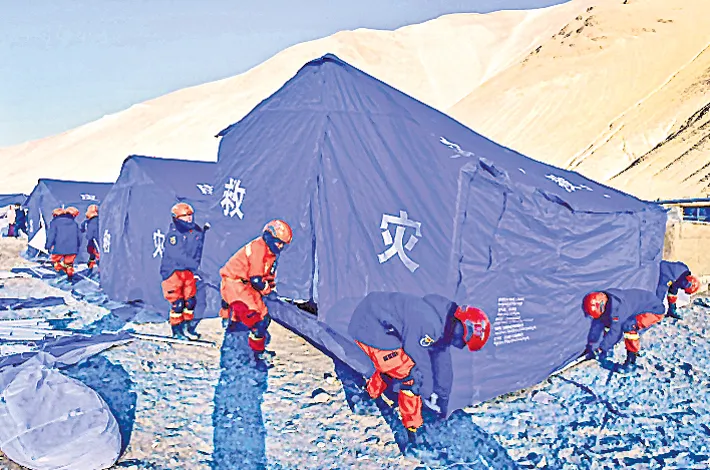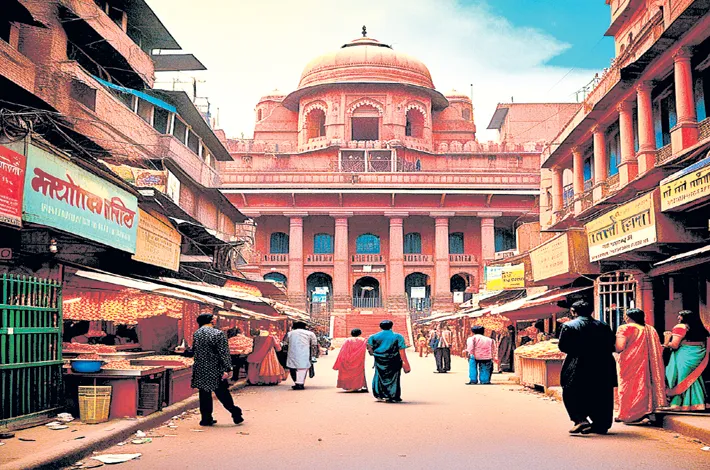Tibet quake: Search for survivors called off
10-01-2025 12:00:00 AM

Agencies BEIJING
Authorities moved more than 45,000 people in earthquake-hit Tibet to shelters in a massive rescue operation near the foot of the Himalayas, as they wound down the search in a high-altitude environment where the odds of survival were always slim.
Chinese officials on Wednesday ended the search for survivors, saying the focus was shifting to relocating the displaced and treating the injured after pulling 407 people from the rubble. Authorities have yet to say how many people remain missing.
The epicentre of Tuesday's 6.8 magnitude quake, one of the Chinese region's strongest tremors in recent years, was in Tingri, a rural county with a population of about 60,000 people around 80 km north of Mount Everest. The temblor shook buildings as far away as Nepal and parts of India, and destroyed more than 3,600 houses around Tingri, presenting a formidable task to rescuers in an area where the average elevation is more than 4,000 metres (13,000 feet).
Forty-eight hours after the quake, experts say those trapped under the rubble are likely to have succumbed to hypothermia, with temperatures dropping as low as minus 18 degrees Celsius (0 degrees Fahrenheit) at night.
An initial tally on Tuesday night showed at least 126 people had been killed and 188 injured, according to Chinese state media. It remained unchanged as of Thursday. Rescue operations have focused on 27 villages within a 20-km radius of Tingri, according to state-run news agency Xinhua. The area is home to 7,000 people.
The State Council Information Office, which handles queries from the media on behalf of the central government, did not respond to a Reuters request for comment. Foreign journalists need official permission to enter Tibet, which has been under Chinese rule since a failed uprising in 1959.
The Dalai Lama, who lives in exile in India, said he was deeply saddened by the quake and would pray for the victims. He is branded a "separatist" by Beijing.








